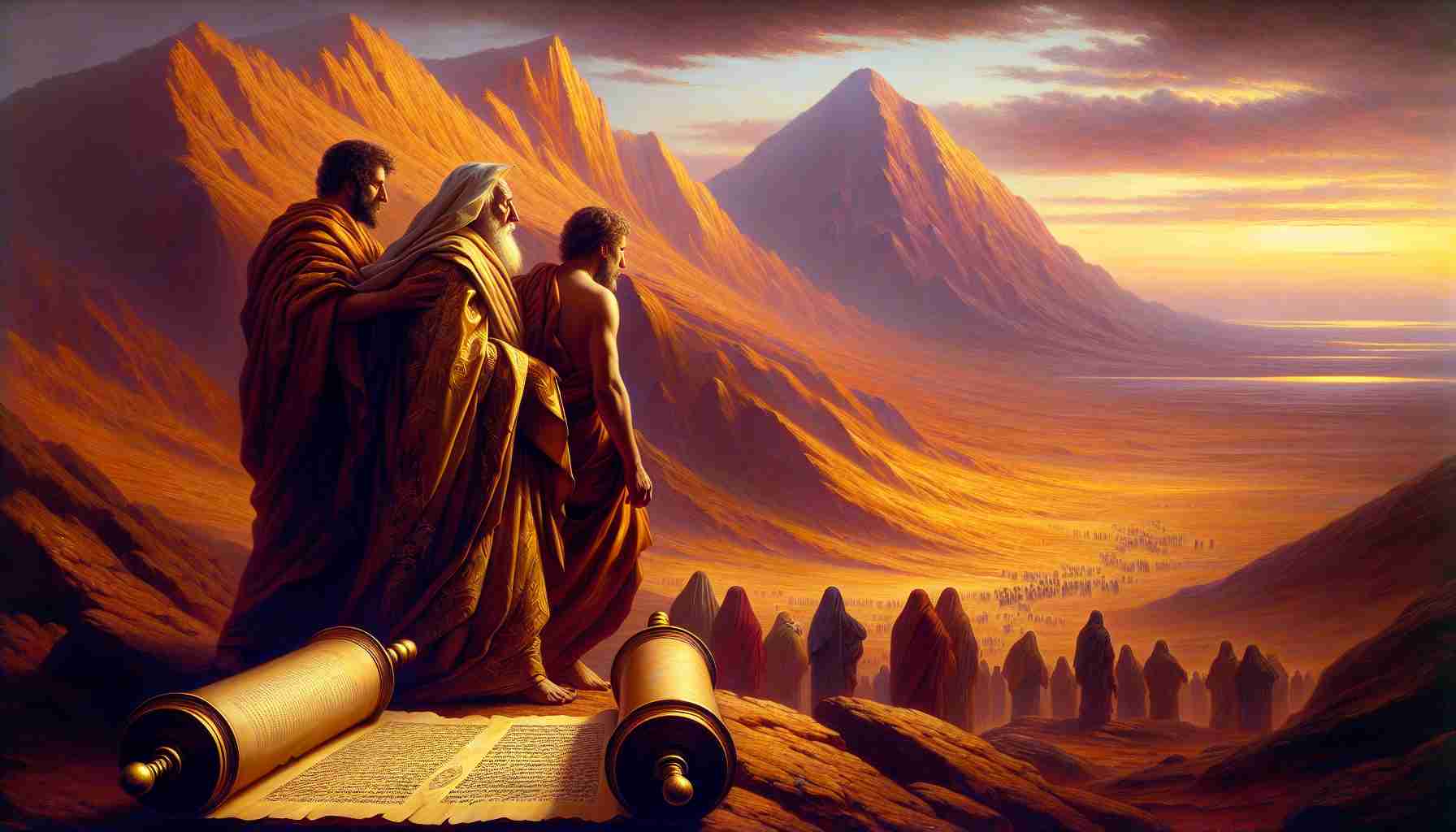

I was one of the Levites who served under Aaron. We weren’t close—not in the way sons are to fathers—but he was my leader, my teacher, my hope during long, dusty years in the wilderness. My name doesn’t matter. I never sought recognition. But I stood near Mount Hor the day Aaron died, and I will never forget what I saw.
We had just left Kadesh. The air was dry and heavy with murmurs—rumors, fears, exhausted prayers. The people were still hurting from Miriam’s death. And now God had spoken again to Moses, telling him that Aaron would not enter the Promised Land. That his time had come.
I was part of the group who helped clear the way up Mount Hor. Moses led the way, and with him, Aaron and his son Eleazar. I held back—Levites weren’t told everything, but we knew enough. Aaron was too quiet that morning. I’d watched him bless the people hundreds of times with words that lifted the heart. But that day, even his steps felt like a farewell.
At the mouth of the cave, they paused. I could see their figures clearly in the sunlight. Moses removed Aaron’s priestly garments—his robe, the sash, the breastplate. Slowly, he passed each piece to Eleazar. I covered my eyes. It wasn’t just clothing. It was a life. A calling.
We waited below in silence. Then Moses returned alone.
No one needed to ask where Aaron was.
I didn’t expect the sob that came out of me. I had served with him for years—the High Priest, the man who made atonement for our sins, the brother of Moses—and now he was gone. My knees gave way. I dropped to the ground, not because I was weak, but because I understood something sharp and terrible: holiness does not guarantee long life, even for the righteous.
For thirty days, the camp wept. Not quiet tears, but the wailing of thousands. It wasn’t just grief—it was the sorrow of knowing something stable had ended. Aaron had stood between the people and God, pleading for mercy time after time. He had stopped plagues with incense and prayer. He had made peace when the people rebelled.
And now, that peacekeeper was gone.
But in the days that followed, as we gathered near the Tent of Meeting and saw Eleazar wearing the garments of his father, something else stirred in me. Aaron was gone, yes—but the covenant remained. God had not abandoned us. New leadership had risen, and somehow, we had to keep walking.
I began to understand: faith is not built on who leads us, but on the One who sends the leaders. Aaron had finished his journey. Mine was still going.
So I served Eleazar. I offered burnt offerings. I sang psalms when my voice would hold. And I carried Aaron’s memory—not as a shadow, but as a light to follow in the desert.
He taught us how to honor God, even in death.
I was one of the Levites who served under Aaron. We weren’t close—not in the way sons are to fathers—but he was my leader, my teacher, my hope during long, dusty years in the wilderness. My name doesn’t matter. I never sought recognition. But I stood near Mount Hor the day Aaron died, and I will never forget what I saw.
We had just left Kadesh. The air was dry and heavy with murmurs—rumors, fears, exhausted prayers. The people were still hurting from Miriam’s death. And now God had spoken again to Moses, telling him that Aaron would not enter the Promised Land. That his time had come.
I was part of the group who helped clear the way up Mount Hor. Moses led the way, and with him, Aaron and his son Eleazar. I held back—Levites weren’t told everything, but we knew enough. Aaron was too quiet that morning. I’d watched him bless the people hundreds of times with words that lifted the heart. But that day, even his steps felt like a farewell.
At the mouth of the cave, they paused. I could see their figures clearly in the sunlight. Moses removed Aaron’s priestly garments—his robe, the sash, the breastplate. Slowly, he passed each piece to Eleazar. I covered my eyes. It wasn’t just clothing. It was a life. A calling.
We waited below in silence. Then Moses returned alone.
No one needed to ask where Aaron was.
I didn’t expect the sob that came out of me. I had served with him for years—the High Priest, the man who made atonement for our sins, the brother of Moses—and now he was gone. My knees gave way. I dropped to the ground, not because I was weak, but because I understood something sharp and terrible: holiness does not guarantee long life, even for the righteous.
For thirty days, the camp wept. Not quiet tears, but the wailing of thousands. It wasn’t just grief—it was the sorrow of knowing something stable had ended. Aaron had stood between the people and God, pleading for mercy time after time. He had stopped plagues with incense and prayer. He had made peace when the people rebelled.
And now, that peacekeeper was gone.
But in the days that followed, as we gathered near the Tent of Meeting and saw Eleazar wearing the garments of his father, something else stirred in me. Aaron was gone, yes—but the covenant remained. God had not abandoned us. New leadership had risen, and somehow, we had to keep walking.
I began to understand: faith is not built on who leads us, but on the One who sends the leaders. Aaron had finished his journey. Mine was still going.
So I served Eleazar. I offered burnt offerings. I sang psalms when my voice would hold. And I carried Aaron’s memory—not as a shadow, but as a light to follow in the desert.
He taught us how to honor God, even in death.